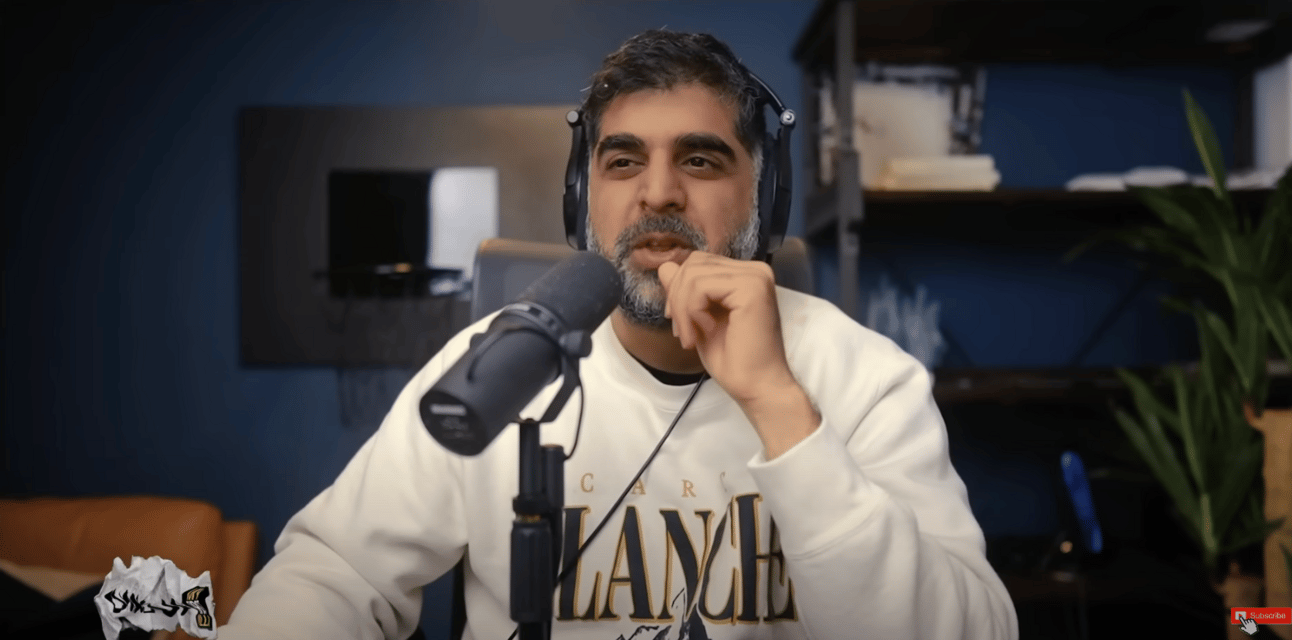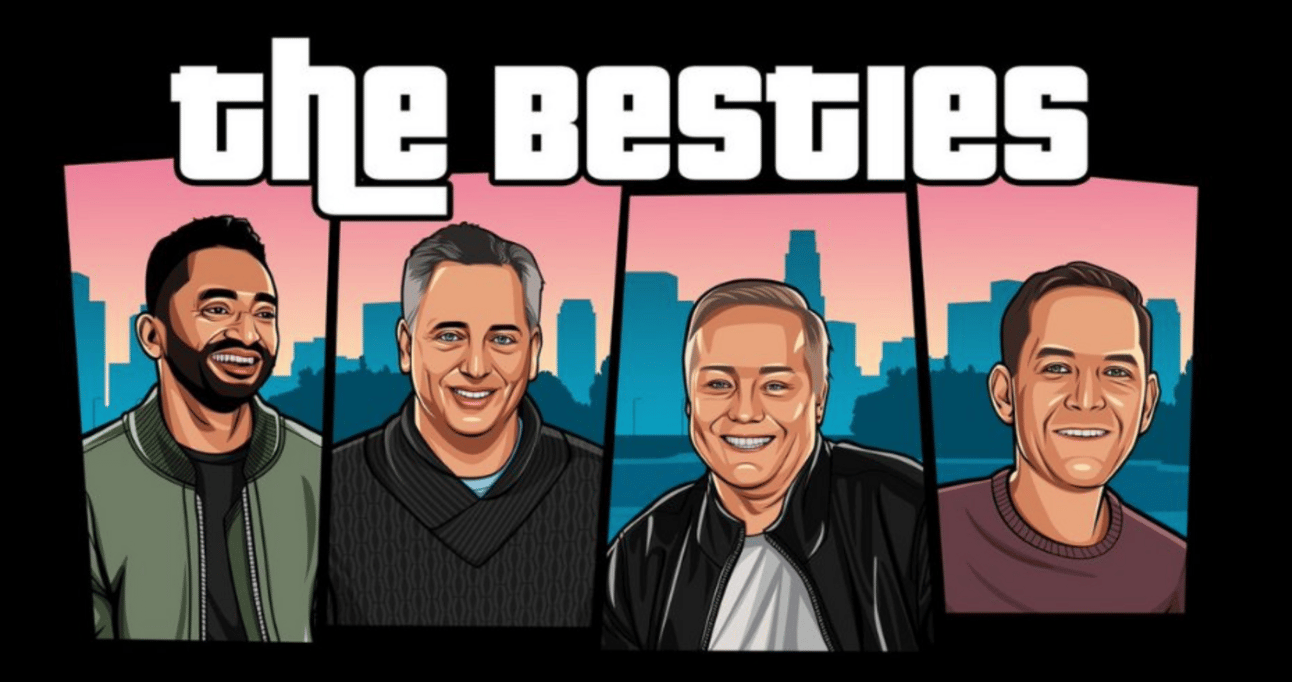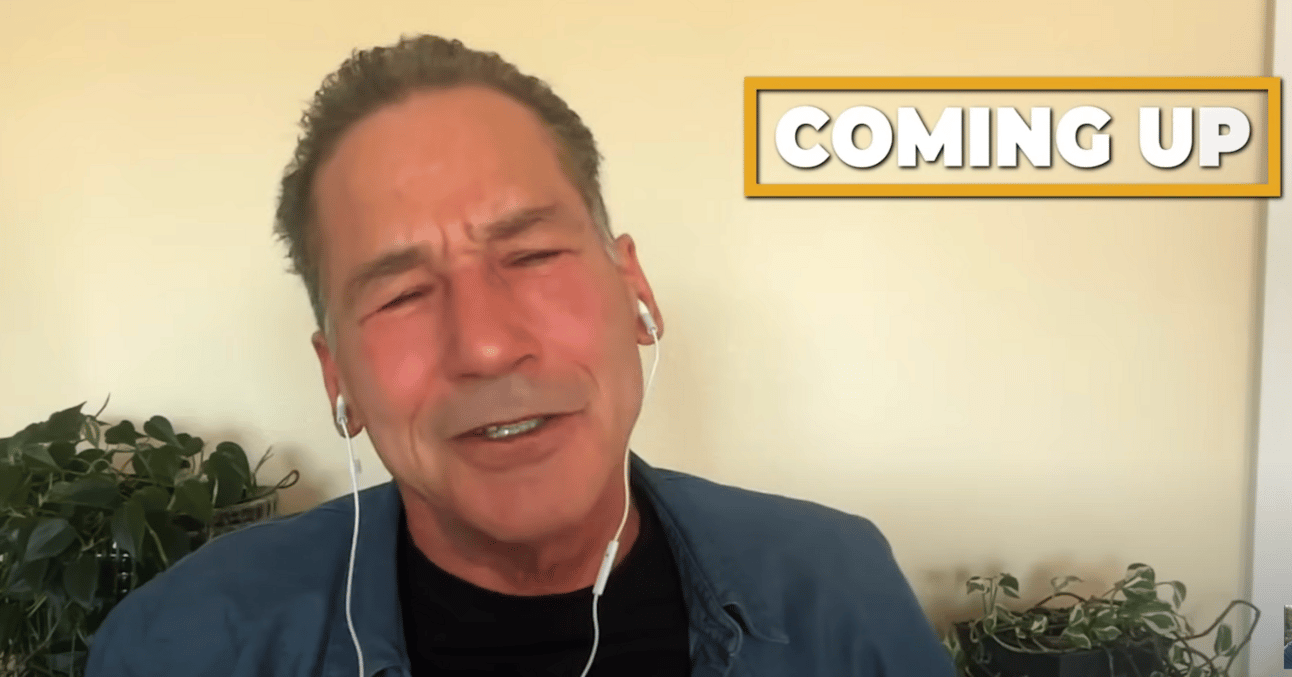- Tech Podcasts This Week
- Posts
- 3 Niche Business Ideas We Thought Would Fail
3 Niche Business Ideas We Thought Would Fail
Stay up to date on the tech podcasts everyone is talking about

Hello,
Everyone in tech is talking about the latest hot podcast - be it the All In Podcast, Joe Rogan or Andrew Huberman.
But with dozens of great episodes every week (some of which are 3 hours long) how do you stay up to date?
Here at Tech Podcasts This Week, we did the work of listening to 23 hours of tech podcasts and picking out the best bits - ready for you as a 3 minutes read.
If you are not already subscribed to the newsletter, please subscribe here. And if you forward this to a friend who also wants to be in the know, we will love you forever.
GS
\The Best of… My First Million
3 Niche Business Ideas We Thought Would Fail… But Actually Crushed It

In this week’s episode of My First Million, Shaan Puri and Sam Parr talk about all the business they didn’t invest in - but went on to win big. What were the businesses?
Jenny AI:
Jenny AI is another AI writing tool - basically not that differentiated and in a super crowded market. But the founder’s persistence and the pivot towards helping college students with essay writing paid off. The service, which began with modest earnings of $2k a month, now generates $300k in MRR (Monthly Recurring Revenue). David's refusal to sell the company early on, despite a tempting offer, underscores the potential he saw in Jenny AI. This story emphasizes the importance of niche targeting and evolving a product based on specific user needs - enhancing students' writing efficiency by suggesting content and checking plagiarism.
Hostage Tape Business:
This idea - to sell tape that goes over people’s mouths to improve sleep - was initially ridiculed (for obvious reasons - it sounds silly). But the business achieved amazing success, growing from $2m in revenue to a projected $40m this year. This venture highlights the value of timing and tapping into a rising health and wellness trend. The entrepreneur's strategy of leveraging influencers and engaging with the community played a crucial role in the business's exponential growth. "I cannot believe this worked," they said.
Flow - A Health App:
Flow was the last investment opportunity missed by Shaan & Sam - a shame for them because the company now has $192m in ARR (Annual Recurring Revenue) and 60m active users. Co-founded in Belarus in 2015 by Dmitry and Yuri Gurski, it focused on women’s health and serves as an tale of identifying the right market at the right time. It seems like a hard a crowded consumer market - but the team has smashed it and has now raised more than $65m.
\The Best of… Joe Rogan
The Unkillable Soldier

Joe Rogan goes nuts for this story of the extraordinary life of Lieutenant General Sir Adrian Paul Ghislain Carton de Wiart, a British Army officer known as "the unkillable soldier." Born to Belgian and Irish parents, his life spanned from 1880 to 1960, and he participated in the Boer War, World War I, and World War II.
Here is what you need to know:
Incredible Survival: Carton de Wiart survived injuries that would have killed most people: "He was shot in the face, head, stomach, ankle, leg, hip, and ear, was blinded in his left eye, survived two plane crashes, tunneled out of a prisoner of war camp, and tore off his own fingers when a doctor declined to amputate them.”
Military Decorations: He was awarded the Victoria Cross, the highest military decoration for valor in the face of the enemy in various Commonwealth countries.
Love for Battle: Despite numerous injuries, Carton de Wiart loved battle. “I enjoyed the war,” he wrote.
His Life Story:
Early Life: Born into aristocracy, he chose the military over a law career. At 19, he sneaked away to join the British Army in the Boer War, beginning a lifetime of combat.
World War I & II: His service continued through both World Wars, with notable actions including leading charges while managing severe injuries, such as fighting with one arm and an eye patch after refusing to wear a glass eye.
Prisoner of War: Despite being captured and becoming a prisoner of war, his indomitable spirit led him to attempt multiple escapes, including digging a 60-meter tunnel with one arm.
Most Useful Takeaways:
Resilience and Determination: Carton de Wiart's story is a testament to human resilience. His ability to overcome severe injuries and continue fighting is inspiring.
Adaptation to Adversity: His inventive ways to adapt to his injuries, such as ripping off his own fingers and fighting with one arm, show incredible adaptability and resolve.
Leadership in Adversity: Leading by example, he demonstrated that effective leadership and courage can inspire others, even in the most challenging situations.
\The Best of… All In Pod
Launch of Sora, Biden’s age and Tucker Carlson with Putin

Here are the three key topics everyone is talking about from this week’s All In Podcast with Chamath Palihapitiya, Jason Calacanis, David Sacks & David Friedberg.
OpenAI's Launch of Sora:
The big discussion was about OpenAI’s Sora, a groundbreaking AI technology capable of generating high-quality video content from textual descriptions. The guys said that they development represents a significant leap in AI's ability to understand and visually represent complex scenarios without traditional 3D modeling or extensive computing resources.
“I really recommend going on Twitter and typing in open AI Sora and looking at some of these demo videos. It's Bonkers and I think it really speaks to what's so incredible right now which is that software is writing itself… this model learned physics on its own and it renders this thing that looks so real.”
Concerns Over President Biden's Age:
The hosts touch on widespread public concern regarding President Biden's age and cognitive fitness, with references to polls indicating a significant portion of the American population, including Democrats, questioning his ability to serve effectively due to his age.
The besties didn’t much love the idea of a presidency potentially being managed by staff or advisors due to the President's incapacitation, underscoring the importance of cognitive fitness for the role.
"A basic cognitive test should not be something that someone who controls nuclear strikes is allowed to skip... it massively increases the risk that you could have somebody that was fundamentally unelected running and making decisions."
Tucker Carlson's Interview with President Putin:
Tucker Carlson’s interview of Putis is presented as a significant media event, saying that it offered insights into Putin's historical perspective and rationalizations for Russia's actions on the international stage.
The hosts though that Putin came across reasonably well from it. "If you had wanted to see some crazy madman, you actually left that interview thinking... this is a person that's leading a nation that has a deep historical context."
\The Best of… Tim Ferris
Use This Technique in Your Next Negotiation

William Ury, cofounder of Harvard's Program on Negotiation, is one of the world's best-known and most influential experts on negotiation. He is coauthor of Getting to Yes, the all-time best selling negotiation book in the world. Here he talks about Warren Buffett and Nelson Mandela on strategies for success and resilience, along with tips on negotiation. Here is what you need to know:
Warren Buffett's Strategies:
Saying "No": Buffett attributes his fortune to his ability to say "no" to almost everything, only saying "yes" to opportunities that perfectly align with his criteria. This principle emphasizes the importance of selectivity and focus.
Investment Philosophy: Buffett's investment success is largely due to his disciplined approach, thoroughly analyzing opportunities and investing in companies with strong fundamentals, understandable business models, and capable management.
Long-term Perspective: Buffett advocates for a long-term perspective in both investing and business decisions, focusing on sustainable growth and value creation over quick gains.
Nelson Mandela's Insights:
Resilience and Forgiveness: Mandela's journey from prison to presidency exemplifies resilience. His ability to forgive his oppressors and work towards reconciliation in South Africa is a powerful lesson in healing and leadership.
Leading by Example: Mandela's leadership style, characterized by humility, integrity, and inclusivity, demonstrates the impact of leading by example. He showed that leadership is not about power, but about empowering others.
Negotiation and Peace Building: Mandela's approach to negotiation, emphasizing understanding the opponent's perspective and finding common ground, was crucial in ending apartheid and building a new South Africa.
Tips in Negotiation:
Listening for Dreams and Fears: Effective negotiation involves listening deeply to understand the underlying dreams and fears of the other party. This can reveal opportunities for mutually beneficial outcomes.
Building Trust: Trust is foundational in negotiation. Establishing credibility, demonstrating respect, and showing empathy can help build a bridge of trust that facilitates open dialogue and compromise.
Creative Problem Solving: Negotiation is not just about dividing a fixed pie but often about finding creative ways to expand the pie for all parties involved. This requires openness, creativity, and a willingness to explore all possible solutions.
Staying Calm and Focused: Keeping emotions in check and focusing on the objectives can help navigate through tense moments in negotiation. Taking breaks and maintaining a clear head are crucial for effective decision-making.
The insights from Buffett and Mandela, along with the negotiation tips, emphasize the importance of focus, resilience, empathy, trust-building, and creativity in achieving success and overcoming challenges.
\The best of… Andrew Huberman
How to Improve Oral Health & Its Critical Role in Brain & Body Health

In this episode of the Huberman Lab, Huberman talks about the importance of oral health for dental and microbiome health and general physical and mental well-being. He explains the science-supported protocols for strengthening your teeth and gums, including how to remineralize your teeth. He explores how oral health is critically important to offset metabolic, cardiac, and brain diseases, including dementia.
Why is oral health so important?
Systemic Health Connection: The oral cavity is a gateway to the body. Poor oral health can lead to bacterial entry into the bloodstream, promoting systemic inflammation and contributing to metabolic, cardiac, and brain diseases.
Cardiovascular Disease: Bacteria from the mouth can enter the bloodstream and attach to damaged areas in the heart's arteries, contributing to heart disease. Inflammation from periodontal disease is also linked to an increased risk of heart disease.
Metabolic Impact: Oral health conditions, especially gum disease, can influence blood sugar control, contributing to the development or worsening of diabetes. The inflammatory response can lead to insulin resistance and impaired glucose metabolism.
Brain Health and Dementia: Oral bacteria, particularly from periodontal disease, can cross the blood-brain barrier and contribute to the formation of plaques associated with Alzheimer's disease. Studies suggest a link between poor oral health and increased risk of dementia, likely mediated by systemic inflammation or direct bacterial involvement.
Preventive Measures: Maintaining oral health through proper hygiene, diet, and regular dental visits can reduce the risk of systemic diseases. Practices that promote a healthy oral microbiome and prevent gum disease can directly influence overall health outcomes.
Tips for good oral health.
Daily Oral Hygiene: Brushing at least twice a day with a soft toothbrush and flossing regularly are fundamental. This helps break up biofilm and prevent the buildup of plaque and tartar.
Proper Brushing Technique: Use a soft toothbrush to gently brush teeth and gums in a circular motion, avoiding harsh scrubbing which can damage gums and enamel.
Saliva's Role: Saliva is crucial for oral health. It contains substances that help rebuild tooth strength and support oral and gut microbiome health. Increasing saliva production through chewing sugar-free gum, especially those containing xylitol, can promote remineralization.
Remineralization: The body can naturally remineralize teeth, reversing early-stage cavities. This involves maintaining a mouth environment that encourages the addition of minerals to tooth enamel. Key factors include the pH of saliva, which should be more alkaline, and the presence of essential minerals in the diet.
Diet and Nutrition: Limiting sugar intake and consuming foods that promote a healthy oral microbiome are important. Xylitol, a sugar alcohol, is particularly beneficial as it cannot be metabolized by harmful bacteria like streptococcus mutans into acids that demineralize teeth.
Avoid Harmful Practices: Reducing or eliminating habits that dry out the mouth (e.g., mouth breathing, certain medications) or introduce acids (e.g., frequent consumption of acidic beverages) can protect enamel and support gum health.
Regular Dental Check-ups: Visiting a dentist regularly for cleanings and check-ups can help catch and address potential issues early, preventing more serious conditions.
\The best of… Lex Fridman
Boston Dynamics and the Future of Robotics

The Lex Fridman Podcast this week is a conversation with Marc Raibert, a pioneer in robotics and the founder of Boston Dynamics, now serving as the executive director of the Boston Dynamics AI Institute. The discussion covers Raibert's early fascination with robotics, the evolution of his career, and insights into the development of groundbreaking robotic technologies. Here's a summary of the key points, backed by quotes from the transcript:
Development of Advanced Robots: Raibert's work has been central to the creation of some of the most advanced robots in the world, including BigDog, Atlas, Spot, and Handle. "We had it [BigDog] carrying about 1,000 pounds at one time."
Passion for Robotics: Raibert's interest in robotics began early, fueled by his environment and an innate desire to build. "I was always a builder from a young age."
Combining Hardware and Software: Raibert emphasizes the importance of hardware innovation alongside software, challenging the notion that hardware innovation is no longer necessary. "People who think you don't need to innovate hardware anymore are wrong."
Evolution of Athletic Intelligence: The conversation delves into the concept of 'athletic intelligence' in robots, which encompasses their ability to perform physical tasks with precision and grace. "We're nowhere near human levels of manipulation... I think it's all too safe."
Educational Background and Career Path: Raibert discusses his educational journey from electrical engineering to robotics, sparked by his fascination with a disassembled robotic arm. "When I saw that... from that day on, I was a roboticist."
Boston Dynamics AI Institute: Raibert talks about the newly created Boston Dynamics AI Institute, focusing on pushing the boundaries of robotics research to develop future generations of robots. "That focuses on research and the cutting edge on creating future generations of robots."
Philosophy of Robot Design: The design and development philosophy at Boston Dynamics involves creating robots that move naturally and can perform tasks in challenging environments. "Making them do things that are interesting."
Innovation and Resilience: Raibert shares insights into the iterative process of robot development, highlighting the importance of resilience and innovation in overcoming technical challenges. "We had a simple robot doing somersaults."
Future of Robotics: Looking ahead, Raibert is optimistic about the potential for robots to achieve even greater capabilities, driven by advancements in both hardware and software. "The idea that it would result in, you know, machines that were anything like practical like we're making now, that wasn't anywhere in my head."